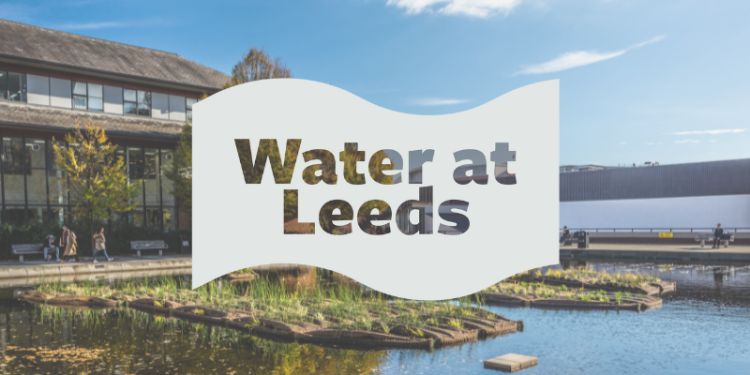Vital relations with rivers: supporting World Water Week at Leeds

This World Water Week, we highlight a project within the Faculty of Social Sciences that explores our relationship with water.
Water is the life source of our planet: our bodies, plants and oceans are made of it. Without it, or when it’s poorly managed, there can be disastrous effects on the planet, human and animal health.
The world’s water is a complex picture with lots of aspects to consider, such as ocean health, marine life, freshwater quality, glaciers, flooding, infrastructure and more.
At the University of Leeds, we have over 300 researchers working on water-related projects across all faculties. This research is supported by our oldest research institute, water@leeds.
This article focuses on the collaborative research between the Faculty of Social Sciences and the Faculty of Environment to support better outcomes for water.
Riverkin: remaking vital relations with rivers
The Water Value Research Group explore our relationships with rivers, with the aim to restore the reciprocal, nurturing attitudes we previously held for them.
“Things” over “kin”
In recent centuries, the overriding economic, technological and philosophical logics have influenced society to relate to waters as ‘things’ rather than forms of kin.
This has led us to value water in economic and political terms rather than recognising its intrinsic worth.
Without understanding that we must take care of our waters to ensure they’re available to take care of us, we are now facing several water crises. Our waters are increasingly polluted and mismanaged.
However, it’s not everywhere that rivers are treated as ‘things’ to be controlled, whose intrinsic value can be disregarded.
Certain cultures, particularly those associated with Indigenous and Aboriginal people, recognise the personhood of rivers. In turn, they often have better relations with them, acknowledging one another’s mutual needs.
In places like New Zealand, Indigenous struggles have led to innovative efforts to learn from these kinds of relationships in how such countries manage their rivers.
Kinship with rivers
The Water Value Research Group coined the term ‘Riverkin’ to illustrate this positive relationship of kinship to rivers.
They explain the concept of kin as “those constituents of environments that reciprocally nurture and contribute to the substance of one another’s life and well-being.”
In their paper titled “Riverkin: seizing the moment to remake vital relations in the UK and beyond”, they argue that the UK and Europe can and must re-ignite our kinship with rivers to resolve the critical challenges that they are facing. The paper will be published in People and Nature this year.
Although privatisation and commodification of water is prevalent in the UK, signs of our kinship with it remain. For example:
- Mutual relationships are present in culture and language, eg in town names like Newcastle Upon Tyne and Stoke on Trent.
- There’s an increasing trend of nature-based wellbeing activities like wild swimming.
- Community movements to gain bathing status of their rivers are gaining momentum.
- Nature-based management solutions (i.e. working ‘with’ nature rather than ‘against’ nature) are being increasingly promoted at policy levels.
These signs lead the Water Value Research Group to believe that kinship with water is possible for the UK.
Riverkin in practice
The researchers are developing connections to partners like river trusts and community groups to share their concept of Riverkin.
They will collaborate with the groups to determine how the reignition of kinship with nature can be put into practice – for example, through activities like swimming, walks and clean-ups.
The research group will also approach policymakers and water companies to understand how they relate to this concept, promote the adoption of it in the industry and inform policies for more sustainable water management.
The Water Value Research Group
The Water Value Research Group is a multidisciplinary team that has worked in many aspects of water research and management.
This includes research in economics, political sciences and human–nature relationships.
Each member recognises the importance of the relationships that humans establish with nature, particularly water. It’s fundamental to everything that then happens with water, such as management, pollution and legislation.
The Water Value Research Group currently includes:
- Dr Josh Cohen – School of Earth and Environment
- Dr Charlie Dannreuther – School of Politics and International Studies
- Dr Markus Fraundorfer – School of Politics and International Studies
- Professor Anna Mdee – School of Politics and International Studies
- Dr Colin Mackie – School of Law
- Professor Julia Martin-Ortega – School of Earth and Environment
- Dr Nicolas Salazar Sutil – independent researcher.
More information
Researchers from the Faculty of Social Sciences collaborate across disciplines and industries to deliver projects that support better water management.
Find out more:




